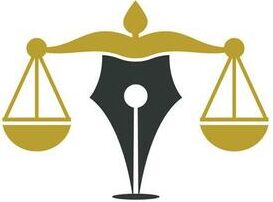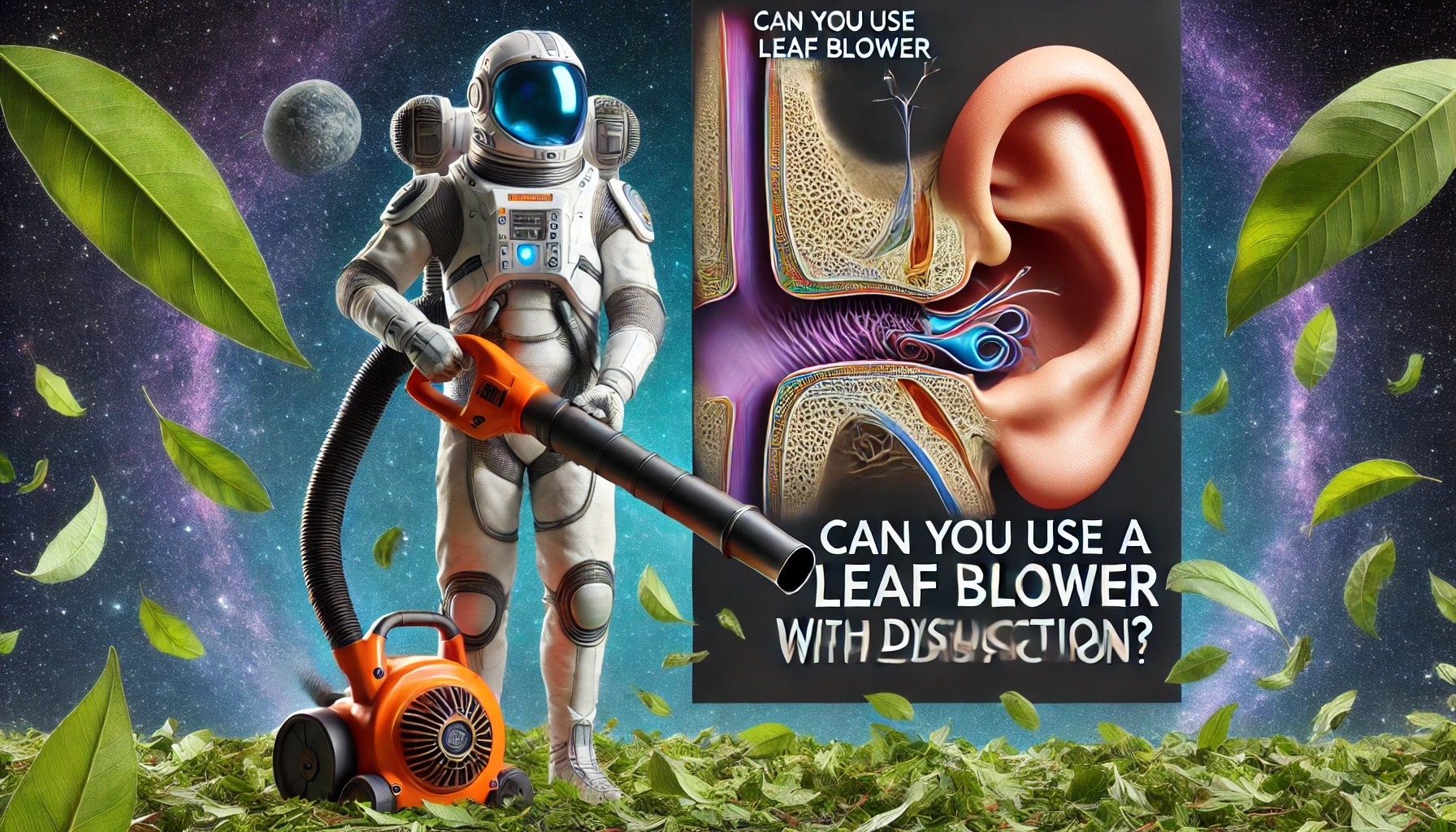If you’re wondering, “Can you use a leaf blower with Eusphatian tube dysfunction?” it’s essential to consider the potential impacts on your ear health. Eusphatian tube dysfunction can cause discomfort and affect your hearing, making exposure to loud noises, such as those produced by a leaf blower, a significant concern. Understanding the risks and implementing safety measures can help you maintain your yard while protecting your ears. In this guide, we’ll explore the implications of using a leaf blower with this condition and offer practical advice for safer yard maintenance.
Understanding Eusphatian Tube Dysfunction
The inability of the Eustachian tubes, which connect the back of the throat to the middle ear, to open and close normally results in Eustachian tube dysfunction. This can lead to pressure imbalances in the ear, resulting in discomfort and potential hearing issues. Various factors, including allergies, infections, and anatomical variations, can contribute to this dysfunction. Understanding this condition is crucial for managing symptoms and making informed decisions about activities like using a leaf blower.
Symptoms of Eusphatian Tube Dysfunction
Common symptoms include:
- Ear pain or discomfort: A feeling of fullness in the ear.
- Hearing changes: Muffled hearing or sounds that seem distant.
- Tinnitus: ears that are buzzing or ringing.
- Balance issues: Dizziness or a sense of unsteadiness.
Recognizing these symptoms can help individuals seek appropriate treatment and avoid aggravating their condition.
The Function of the Eustachian Tube
The Eustachian tube plays a vital role in equalizing pressure between the middle ear and the external environment. It also helps drain fluid from the middle ear and protects it from pathogens. Proper functioning of this tube is essential for maintaining ear health and hearing clarity. Dysfunction can disrupt these functions, leading to discomfort and potential complications.
How Eusphatian Tube Dysfunction Affects Daily Life
Living with Eusphatian tube dysfunction can significantly impact daily activities. Individuals may experience ongoing discomfort, which can affect concentration and productivity. Tasks that involve loud noises, such as using a leaf blower, may exacerbate symptoms, making it challenging to engage in routine activities without discomfort or fear of worsening their condition.
Risks of Using a Leaf Blower with Eusphatian Tube Dysfunction
Using a leaf blower can pose several risks for individuals with Eusphatian tube dysfunction, including:
- Increased ear pressure: Loud noise can exacerbate pressure imbalances.
- Hearing damage: Prolonged exposure to high decibel levels may worsen hearing issues.
- Aggravation of symptoms: The vibrations and noise may lead to increased discomfort or pain.
Taking precautions is vital to minimize these risks when using such equipment.
Are There Risks in Using Loud Equipment?
Yes, using loud equipment like leaf blowers can pose several risks, particularly for those with pre-existing ear conditions. Potential risks include:
- Hearing loss: Prolonged exposure to loud sounds can lead to irreversible damage.
- Tinnitus aggravation: Loud noises may worsen ringing in the ears.
- Increased stress: The discomfort caused by loud sounds can lead to heightened stress and anxiety.
Being aware of these risks can help individuals make informed decisions about their activities.
Leaf Blowers: An Overview
Leaf blowers are tools designed to clear leaves and debris from outdoor spaces quickly and efficiently. They come in various types, including gas-powered, electric, and battery-operated models. While they offer convenience, their noise levels and potential for vibration can pose challenges for individuals with ear-related conditions.
The Noise Level of Leaf Blowers
Leaf blowers typically operate at noise levels ranging from 70 to 90 decibels, depending on the model. To put this in perspective:
- 70 dB: Comparable to a vacuum cleaner, which can be bothersome.
- 90 dB: Similar to a motorcycle, posing significant risks for hearing damage.
Due to these high decibel levels, caution is advised, especially for those with sensitive ears or existing conditions.
How Noise Affects Ear Health
Exposure to loud noise can lead to various ear health issues, including:
- Temporary threshold shift: A temporary reduction in hearing sensitivity after exposure.
- Permanent hearing loss: Prolonged exposure can damage hair cells in the cochlea, leading to lasting issues.
- Increased tinnitus: Loud noises can trigger or worsen tinnitus symptoms.
Understanding these effects can motivate individuals to take protective measures when using loud equipment.
Recommendations for Using Leaf Blowers with Eusphatian Tube Dysfunction
If you have Eusphatian tube dysfunction and need to use a leaf blower, consider the following recommendations:
- Wear hearing protection: Use earmuffs or earplugs to minimize noise exposure.
- Limit exposure time: Take frequent breaks to reduce overall noise exposure.
- Choose quieter models: Opt for leaf blowers with lower decibel ratings to lessen impact.
- Consult a healthcare professional: Seek advice on managing symptoms while using noisy equipment.
These precautions can help you maintain your yard while safeguarding your ear health.
Alternative Yard Maintenance Options
For those concerned about using a leaf blower with Eusphatian tube dysfunction, there are several alternative yard maintenance options:
- Rakes and brooms: Manual tools can be effective for small areas and reduce noise exposure.
- Mulchers: These can process leaves quietly while providing mulch for gardens.
- Vacuum systems: Some outdoor vacuums operate at lower noise levels compared to traditional blowers.
- Composting: Instead of blowing leaves, consider composting them, which is quieter and environmentally friendly.
These alternatives can help you maintain your yard without the risks associated with loud equipment.
Protective Gear for Leaf Blower Use
When using a leaf blower, especially for those with ear sensitivities, wearing protective gear is essential:
- Hearing protection: Earmuffs or earplugs can significantly reduce noise exposure.
- Safety goggles: Protect your eyes from debris.
- Dust masks: To prevent inhaling dust and allergens.
- Sturdy footwear: To protect against sharp objects or slips.
Equipping yourself with the right gear can enhance safety and comfort during yard work.
Managing Symptoms of Eusphatian Tube Dysfunction
Managing symptoms of Eusphatian tube dysfunction involves a combination of strategies:
- Stay hydrated: Drinking plenty of fluids can help maintain mucus consistency.
- Use saline nasal sprays: These can reduce congestion and promote better Eustachian tube function.
- Practice ear equalization techniques: Yawning or swallowing can help equalize pressure in the ears.
- Avoid allergens: Minimizing exposure to allergens can reduce inflammation.
Implementing these measures can help alleviate discomfort and improve daily functioning.
Consulting Healthcare Professionals
If you experience symptoms of Eusphatian tube dysfunction, consulting a healthcare professional is crucial. They can provide:
- Accurate diagnosis: To determine the underlying cause of your symptoms.
- Treatment options: Including medications or therapies that can improve Eustachian tube function.
- Guidance on safe practices: Personalized advice regarding activities like using a leaf blower.
Regular check-ups can help monitor your condition and prevent complications.
The Importance of Hearing Protection
Hearing protection is vital for anyone exposed to loud noises, especially those with existing ear conditions:
- Prevents hearing loss: Proper protection can significantly reduce the risk of noise-induced damage.
- Reduces tinnitus symptoms: Keeping noise levels down can help alleviate ringing in the ears.
- Enhances focus: Reducing ambient noise allows for better concentration on tasks.
Investing in quality hearing protection is a proactive step in maintaining ear health.
Tips for Minimizing Noise Exposure
To minimize noise exposure while using a leaf blower, consider the following tips:
- Choose quieter times: Use equipment when fewer people are around to reduce stress.
- Limit duration: Take breaks to prevent prolonged exposure to loud sounds.
- Position yourself wisely: If possible, work in open areas where sound can dissipate.
- Use noise-reducing accessories: Some blowers come with attachments that can lessen noise output.
Implementing these strategies can help protect your hearing while accomplishing yard work.
Personal Experiences: Using Leaf Blowers with Eusphatian Tube Dysfunction
Many individuals with Eusphatian tube dysfunction report mixed experiences when using leaf blowers. Some common themes include:
- Increased discomfort: Many find that the noise exacerbates their symptoms.
- Fear of aggravation: Concerns about potential damage to hearing can make yard work stressful.
- Adoption of alternatives: Some have switched to quieter methods or reduced their use of blowers altogether.
Sharing these experiences can provide valuable insights for others facing similar challenges.
Long-Term Effects of Noise Exposure on Ear Health
Long-term exposure to loud noise can lead to several ear health issues, such as:
- Permanent hearing loss: Continuous exposure can damage the auditory nerve.
- Chronic tinnitus: Persistent ringing or buzzing in the ears can develop.
- Increased risk of ear infections: Noise can lead to stress and inflammation, increasing susceptibility.
Understanding these risks underscores the importance of protective measures in maintaining ear health.
Final Thoughts on Can You Use a Leaf Blower with Eusphatian Tube Dysfunction
In conclusion, while using a leaf blower with Eusphatian tube dysfunction is possible, it requires careful consideration of the risks involved. Implementing protective measures, exploring quieter alternatives, and managing symptoms can help mitigate potential discomfort and health issues. Always prioritize ear safety and consult with healthcare professionals for personalized advice. Your ear health is paramount, so make informed choices when it comes to yard maintenance.
Frequently Asked Questions (FAQs)
Is it safe to use a leaf blower with Eusphatian tube dysfunction?
Using a leaf blower can pose risks due to the loud noise and vibrations, which may exacerbate symptoms. It’s essential to assess your comfort level and take precautions.
What symptoms might worsen when using a leaf blower?
Symptoms like ear pain, muffled hearing, and tinnitus can become more pronounced when exposed to the noise of a leaf blower.
How can I protect my ears while using a leaf blower?
Wearing hearing protection such as earmuffs or earplugs can help minimize noise exposure and protect your ear health.
Are there quieter alternatives to leaf blowers?
Yes, consider using rakes, brooms, or battery-operated vacuums, which typically produce less noise and can be gentler on the ears.
What precautions should I take before using a leaf blower?
Limit exposure time, choose a quieter model, and consult with a healthcare professional for personalized advice based on your symptoms.
Can using a leaf blower lead to long-term ear damage?
Prolonged exposure to loud noises, including leaf blowers, can contribute to permanent hearing loss and worsen conditions like tinnitus.
When should I consult a healthcare professional regarding my symptoms?
If you experience persistent or worsening symptoms related to Eusphatian tube dysfunction, it’s important to seek medical advice for proper evaluation and management.

